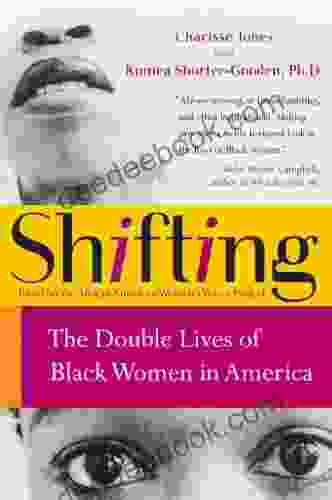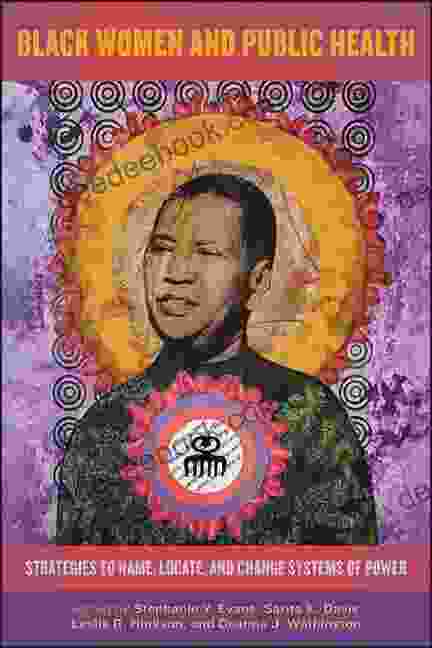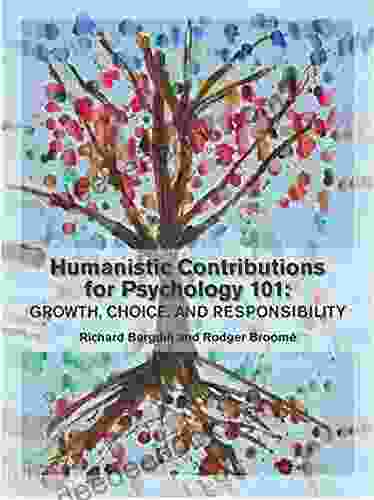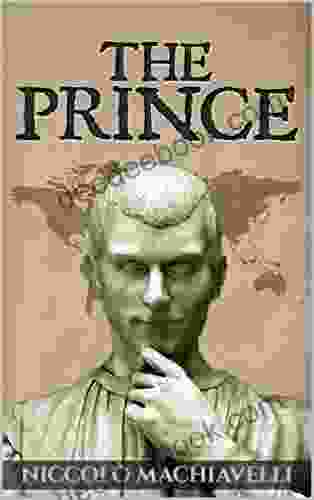Humanistic Contributions to Psychology: A Comprehensive Exploration

4 out of 5
| Language | : | English |
| File size | : | 495 KB |
| Text-to-Speech | : | Enabled |
| Screen Reader | : | Supported |
| Enhanced typesetting | : | Enabled |
| Word Wise | : | Enabled |
| Print length | : | 219 pages |
| Lending | : | Enabled |
Humanistic psychology emerged as a significant movement within psychology in the mid-20th century, challenging the dominant paradigms of behaviorism and psychoanalysis. Humanistic psychologists emphasized the importance of subjective experience, personal growth, and free will, and they sought to create a more holistic and meaningful understanding of human nature.
History of Humanistic Psychology
The roots of humanistic psychology can be traced back to the early 20th century, with the work of thinkers such as William James, John Dewey, and Carl Jung. However, it was not until the 1950s and 1960s that humanistic psychology emerged as a distinct movement. Key figures in this movement included Carl Rogers, Abraham Maslow, Viktor Frankl, and Rollo May.
Key Principles of Humanistic Psychology
- Emphasis on Subjective Experience: Humanistic psychologists believe that the subjective experience of individuals is essential to understanding their behavior. They focus on how people perceive, interpret, and make meaning of their world.
- Personal Growth and Self-Actualization: Humanistic psychologists believe that humans have an innate potential for growth and self-actualization. They are motivated to fulfill their potential and become the best that they can be.
- Free Will and Responsibility: Humanistic psychologists emphasize the importance of free will and personal responsibility. They believe that individuals are responsible for their own choices and actions.
- Holistic Perspective: Humanistic psychologists view individuals as complex beings who cannot be reduced to a set of behaviors or traits. They take into account the whole person, including their emotional, social, cognitive, and spiritual dimensions.
Major Contributors to Humanistic Psychology
- Carl Rogers: Rogers developed the concept of client-centered therapy, which emphasized the importance of empathy, unconditional positive regard, and self-acceptance. He believed that individuals have the capacity to change and grow if they are provided with a supportive and nurturing environment.
- Abraham Maslow: Maslow is known for his hierarchy of needs, which postulates that individuals must satisfy their basic physiological needs before they can focus on higher-order needs, such as self-actualization. He believed that all individuals have the potential to achieve their full potential if they are given the opportunity.
- Viktor Frankl: Frankl developed the theory of logotherapy, which emphasizes the importance of finding meaning in life. He believed that humans are motivated by a search for meaning and that this search is essential for psychological well-being.
- Rollo May: May was an existential psychologist who wrote extensively about the existential themes of anxiety, freedom, and death. He believed that humans are responsible for creating their own meaning in life and that they must confront the existential challenges that come with being human.
Applications of Humanistic Psychology in Psychotherapy
Humanistic psychology has had a significant impact on the practice of psychotherapy. Humanistic therapists focus on helping clients to understand and accept themselves, to overcome obstacles to personal growth, and to find meaning and purpose in their lives. Key approaches to humanistic psychotherapy include:
- Client-Centered Therapy (Carl Rogers): This approach emphasizes the importance of empathy, unconditional positive regard, and self-acceptance. The therapist provides a safe and supportive environment in which clients can explore their thoughts and feelings and work towards personal growth.
- Existential Therapy (Viktor Frankl, Rollo May): This approach focuses on helping clients to find meaning in their lives and to confront the existential challenges that come with being human. The therapist helps clients to develop a sense of responsibility and purpose and to live their lives to the fullest.
- Transpersonal Psychology: This approach incorporates spiritual and transpersonal dimensions into psychotherapy. Transpersonal therapists believe that human beings have a spiritual nature and that this nature can be a source of growth and healing.
Humanistic psychology has made significant contributions to our understanding of human nature and to the practice of psychotherapy. Humanistic psychologists have emphasized the importance of subjective experience, personal growth, and free will, and they have provided a more holistic and meaningful way of understanding human beings. The principles of humanistic psychology continue to influence the field of psychology today and to provide a valuable framework for helping people to live more fulfilling and meaningful lives.
4 out of 5
| Language | : | English |
| File size | : | 495 KB |
| Text-to-Speech | : | Enabled |
| Screen Reader | : | Supported |
| Enhanced typesetting | : | Enabled |
| Word Wise | : | Enabled |
| Print length | : | 219 pages |
| Lending | : | Enabled |
Do you want to contribute by writing guest posts on this blog?
Please contact us and send us a resume of previous articles that you have written.
 Book
Book Page
Page Text
Text Library
Library Newspaper
Newspaper Glossary
Glossary Preface
Preface Synopsis
Synopsis Footnote
Footnote Scroll
Scroll Tome
Tome Bestseller
Bestseller Library card
Library card Narrative
Narrative Autobiography
Autobiography Memoir
Memoir Reference
Reference Encyclopedia
Encyclopedia Narrator
Narrator Resolution
Resolution Catalog
Catalog Card Catalog
Card Catalog Borrowing
Borrowing Stacks
Stacks Archives
Archives Research
Research Lending
Lending Reserve
Reserve Academic
Academic Journals
Journals Rare Books
Rare Books Special Collections
Special Collections Interlibrary
Interlibrary Study Group
Study Group Thesis
Thesis Storytelling
Storytelling Awards
Awards Book Club
Book Club Theory
Theory Textbooks
Textbooks Alan Chambers
Alan Chambers Molefi Kete Asante
Molefi Kete Asante Joyce Hansen
Joyce Hansen William Roskey
William Roskey Graham Ley
Graham Ley Lee Garratt
Lee Garratt Sage Alexander
Sage Alexander Pamela Geller
Pamela Geller Geoff Sandles
Geoff Sandles Kathryn Newcomer
Kathryn Newcomer Suzanne Loftus
Suzanne Loftus Iola Reneau
Iola Reneau Paul A Passavant
Paul A Passavant James Robert Saunders
James Robert Saunders Jenifer Dick
Jenifer Dick Joseph Midthun
Joseph Midthun Keisha Ervin
Keisha Ervin Frank Miniter
Frank Miniter Moya Bailey
Moya Bailey Amarra Skye
Amarra Skye
Light bulbAdvertise smarter! Our strategic ad space ensures maximum exposure. Reserve your spot today!

 Manuel ButlerUnveiling the Profound Impact of Luis Alfaro's Greek Trilogy: A Journey into...
Manuel ButlerUnveiling the Profound Impact of Luis Alfaro's Greek Trilogy: A Journey into... Connor MitchellFollow ·16.2k
Connor MitchellFollow ·16.2k Octavio PazFollow ·13.7k
Octavio PazFollow ·13.7k Julio CortázarFollow ·4.4k
Julio CortázarFollow ·4.4k Adam HayesFollow ·6.6k
Adam HayesFollow ·6.6k Chandler WardFollow ·15k
Chandler WardFollow ·15k Billy PetersonFollow ·4.9k
Billy PetersonFollow ·4.9k Daniel KnightFollow ·12.9k
Daniel KnightFollow ·12.9k Victor HugoFollow ·10.2k
Victor HugoFollow ·10.2k

 Ken Follett
Ken FollettThe Double Lives of Black Women in America: Navigating...
Black women in...

 Cade Simmons
Cade SimmonsBanging My Billionaire Boss: A Love Story for the Ages...
Chapter 1: The Interview I was...

 Brent Foster
Brent FosterThe Struggle for Black Enfranchisement: A Complex and...
The struggle for...

 Henry Green
Henry GreenWhen Savage Needs Love: His BBW Obsession
When Savage Needs Love is a 2019 romantic...

 Alexandre Dumas
Alexandre DumasBlack Women and Public Health: A Historical Examination...
Black women have...
4 out of 5
| Language | : | English |
| File size | : | 495 KB |
| Text-to-Speech | : | Enabled |
| Screen Reader | : | Supported |
| Enhanced typesetting | : | Enabled |
| Word Wise | : | Enabled |
| Print length | : | 219 pages |
| Lending | : | Enabled |












